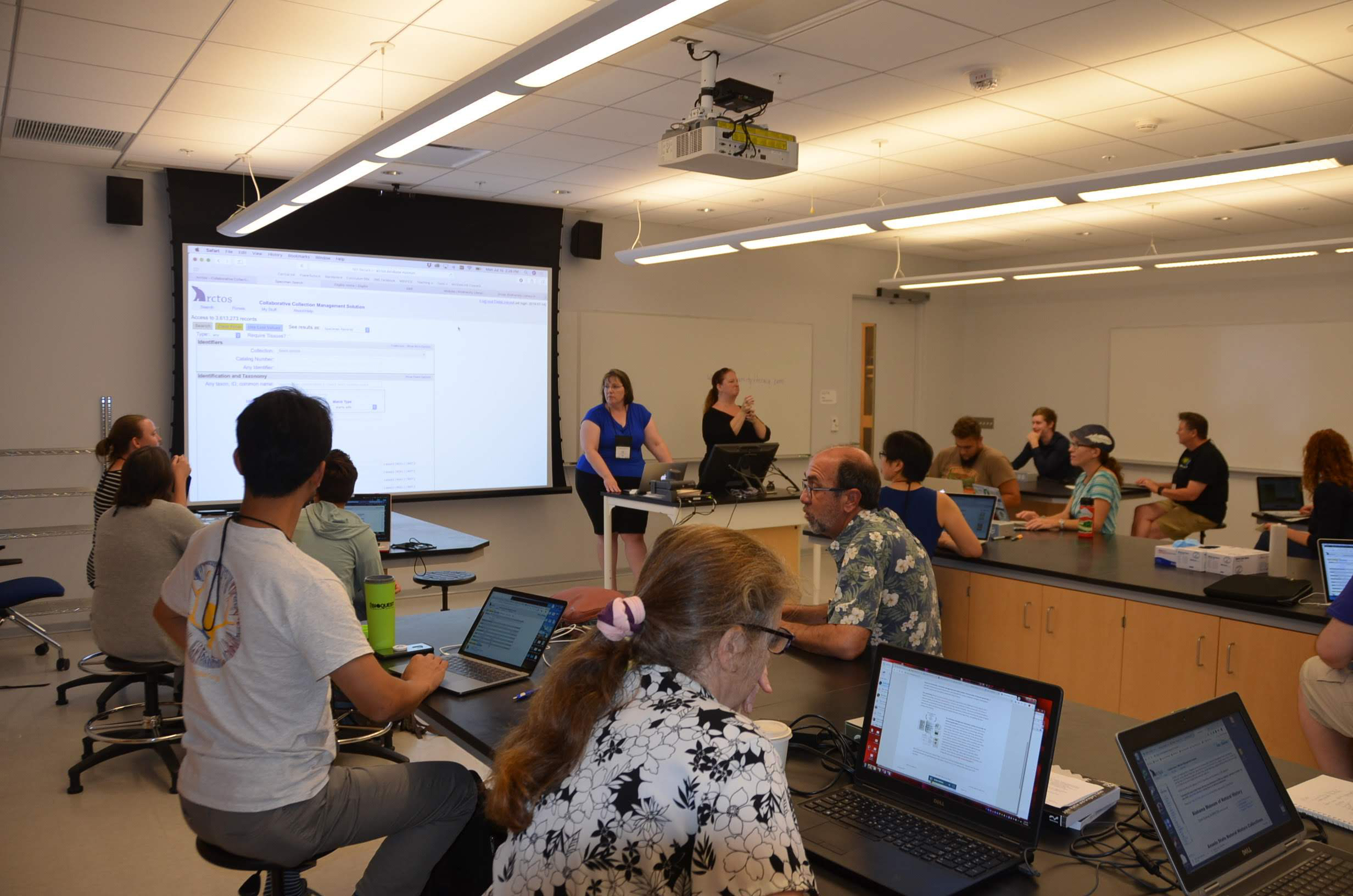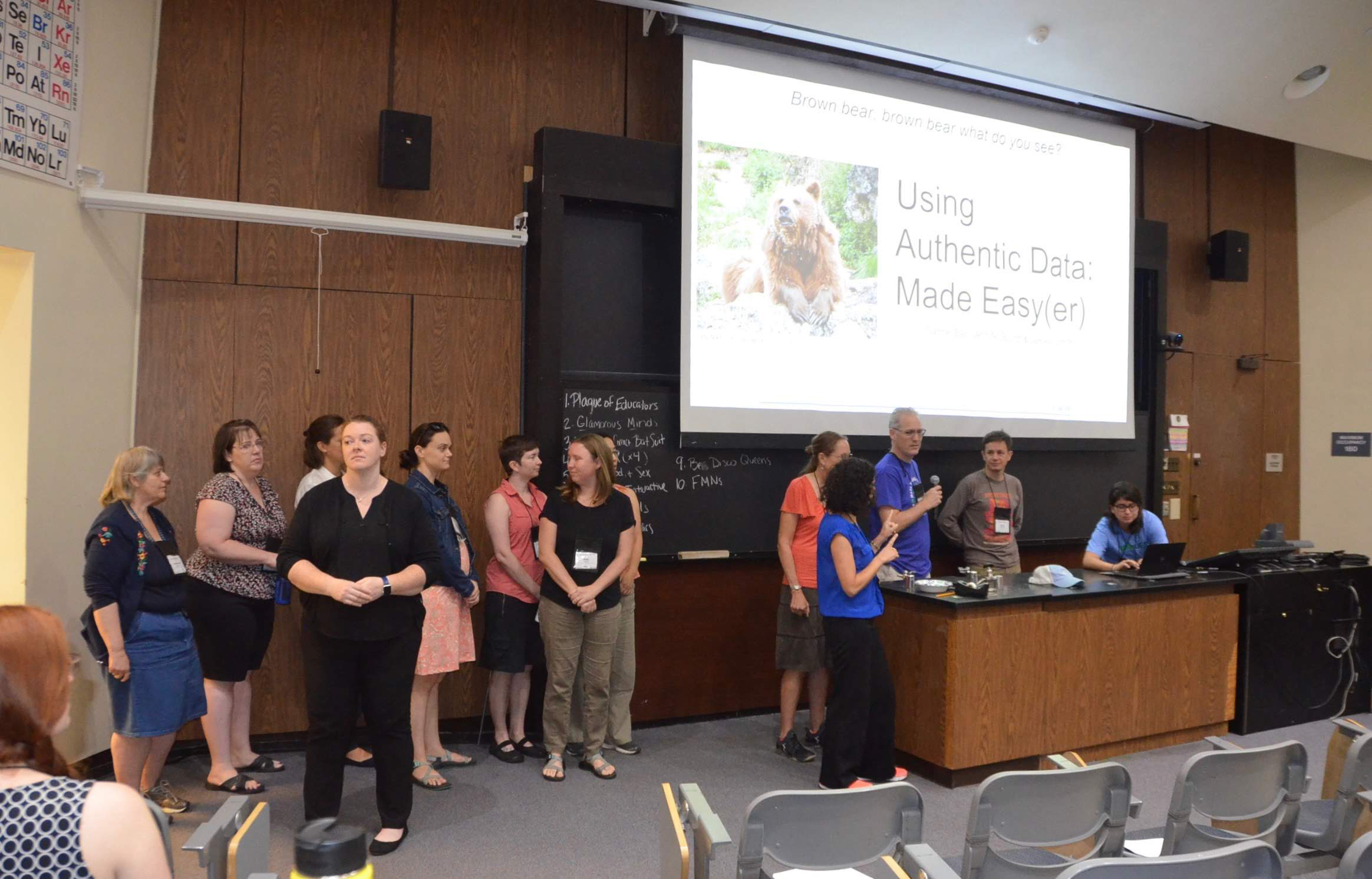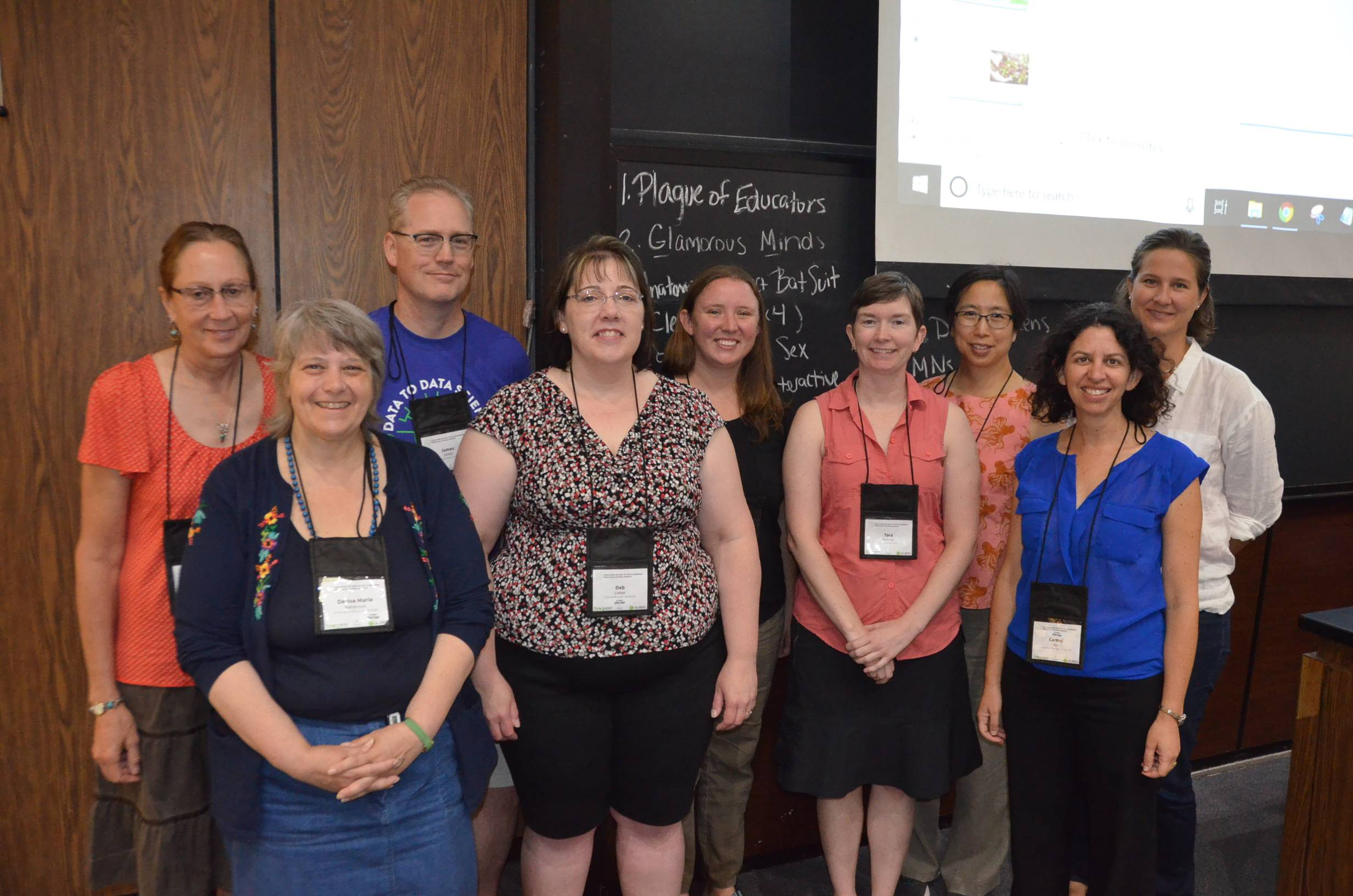 Contributed by: Molly Phillips, iDigBio's Education, Outreach & Diversity Coordinator
Contributed by: Molly Phillips, iDigBio's Education, Outreach & Diversity Coordinator
Images courtesy of Adam Fagen
I was fortunate to attend this year’s BioQuest/QUBES Summer Workshop, Evolution of Data in the Classroom: From Data to Data Science (SW 2019) July 14-19, 2019, hosted at William and Mary in Williamsburg, Virginia. The event kicked off with an afternoon poster session which Debra Linton of Central Michigan University and I presented a poster summarizing the Biodiversity Literacy in Undergraduate Education (BLUE) initiative. We were asked questions about where educators can find resources related to using collections data in the classroom which foreshadowed the majority of my conversations for the remainder of the meeting. During dinner we heard an inspiring keynote from Karen Cangialosi about open science and open education. I highly recommend checking out her slides which can be found here.
The next two days consisted of interactive BioBytes, engaging keynotes, and workshop sessions. In our first BioByte, Sam Donovan introduced us to the concept of “data acumen” with an interactive activity rating our confidence and interest in the 10 components of data acumen from Data Science for Undergraduates. The other BioBytes introduced us to resources like CODAP and BIRDD, and to the connected ecosystem of people and projects working in biology and data science.
The keynotes throughout the meeting were spectacular. Bryan Dewsbury gave the second keynote about inclusive teaching. He focused on the importance of relationship building with students to create an environment that all students can thrive. Our second keynote, “Data Science as a Superpower,” was by Amelia McNamara in which she discussed the opportunities and challenges of using big data. Our final keynote was Krystal Tsosie from SING who spoke to our group about genomic and data sovereignty and her experiences assisting the Cheyenn e River Sioux Tribal nation with instituting their own policies for data privacy, biobanking, and building research capacity.
e River Sioux Tribal nation with instituting their own policies for data privacy, biobanking, and building research capacity.
We also had several different professional development workshop options. I chose to attend the “Using NEON Data” session facilitated by Megan Jones who introduced NEON and NEON resources and then walked us through a module with NEON small mammal data. After lunch, Deb Linton and I facilitated a BLUE workshop entitled “Data Science and Digitized Natural History Collections” where we introduced participants to natural history collections and their data, public collections data sources, and the Biodiversity Literacy in Undergraduate Education (BLUE) project. We then encouraged participants to explore their choice of three modules from BLUE. One module used data from iDigBio, another from GBIF, and the third used Arctos. We concluded with a discussion with the participants about challenges in implementation. My last workshop of the day was with Carrie Diaz Eaton and Bryan Dewsbury on “Inclusive Education Leadership” where they interviewed each other asking questions about how they came to their work on equity, how their own identities evolved, and the ways in which their experiences continue to impact their views on social justice overall.
We transitioned into our next three days with an introduction to “Problem Posing: Empowering Students to Ask Good Questions“ through an interactive activity. We then split into small groups where we worked on adding “problem posing” into an existing classroom activity. My question focus was “science reproducibility.” At the end of the night we did an informal poster session where each working group presented on what they discussed. This exercise also helped us to start thinking about which topic we wanted to work on for the rest of the meeting. Throughout the meeting we had a brainstorming board where people recorded ideas for potential projects.
For the remainder of the meeting I joined a rather large group of people all interested in data quality and data cleaning. Everyone in the group was interested in using authentic data in their classes, but were worried their students would be too frustrated dealing with the large, heterogeneous datasets that you often get from data aggregators. We started by identifying what our learning objectives were for cleaning data from publicly available data sources. We then split into smaller sub-groups to work on different aspects of our topic. One sub-group focused on creating recommendations and considerations for instructors before they implement problem posing with data in their classrooms. Two other sub-groups collaborated on the creation of data cleaning modules. The two module sub-groups worked together to create a general workflow for how to clean aggregated biological data by consulting resources like Data One and Data Carpentries, and also discussed specific considerations when using aggregated biological data sources. After convening on a workflow they divided again to work on separate modules using Excel and R. Another sub-group worked on data visualization for cleaning and quality using CODAP. Debra Linton found us a really great practice dataset of Brown Bear (Ursus arctos) specimen data from Arctos and we also pulled in data from the National Phenology Network, NEON, and individual research projects.
The final product was a lightening presentation so our groups worked through the evening perfecting our slides and populating them with plenty of bear-themed memes. On our last day we had our final BioByte presentation, and then all of the groups had a chance to give our lightening presentations.

This is my second time participating in the BioQuest/QUBES Summer Workshops and both times I have come away feeling like I learned so much about pedagogy, quantitative science, and this time especially, inclusion and universal design. Our group is planning on continuing what we started at the workshop and is already planning next steps. We hope to continue to develop, implement, and share our resources so stay tuned! A special thanks to iDigBio and the Florida Museum for funding my travel, for BLUE for encouraging my involvement, and to the QUBES and BioQuest teams for putting on a fantastic meeting!

Partial group photo
Back: Jennifer Buntz, James Smith, Molly Phillips, Suann Yang, Megan Jones
Front: Denise Marie Ratterman, Debra Linton, Tara A Pelletier, Carmel Bar
Missing from this photo: Dmitry Kondrashov, Elizabeth Hamman,and Leslie Ries.







